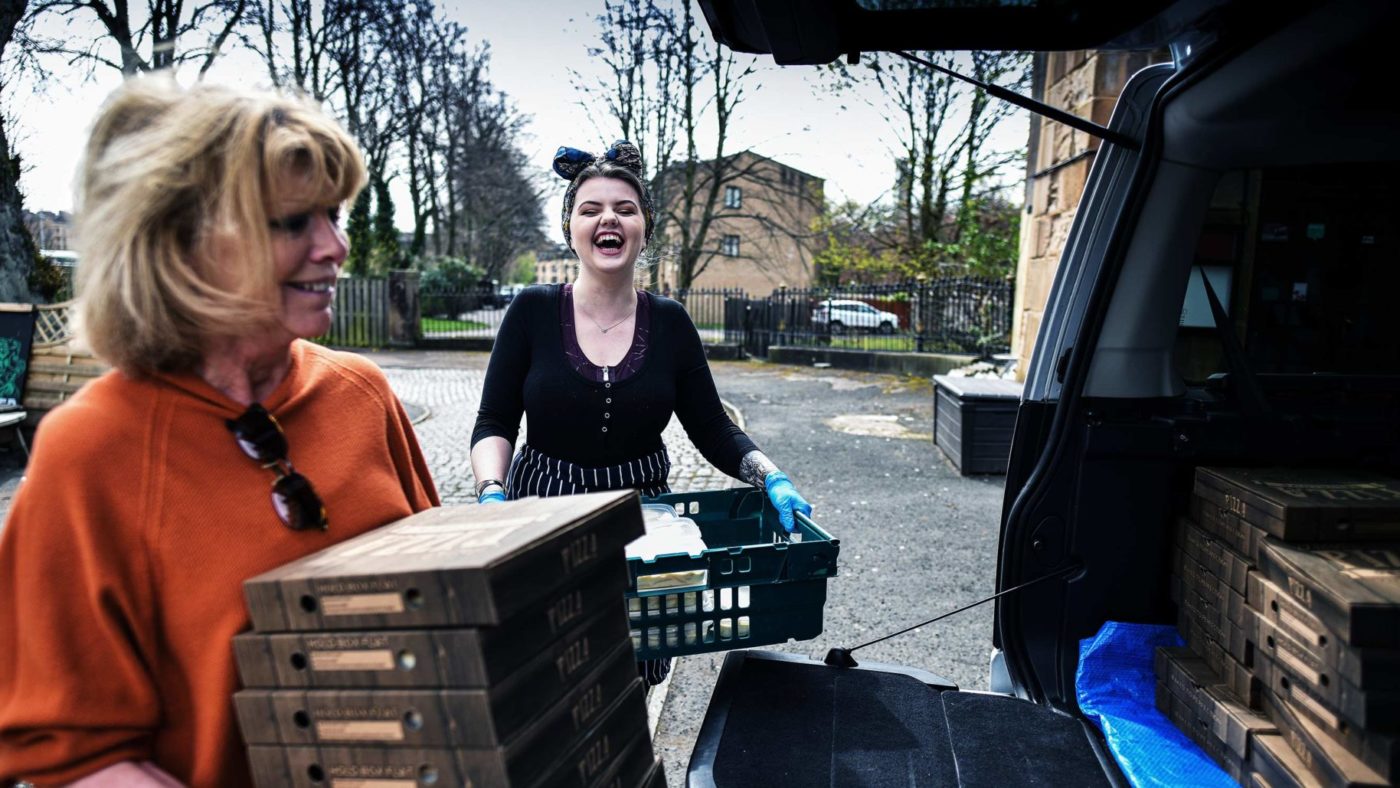Volunteering was already popular before this crisis struck. The most recent participation numbers published by the National Council for Voluntary Organisations show that just over 20 million people were involved in voluntary activity in 2018. That number may well have soared during lockdown as people who are not able to work look for other ways to use their time to help their communities.
We can see as much from the massive response to the NHS Volunteer Responders initiative, led by the Royal Voluntary Service, which has amassed some 750,000 volunteers, many more even than the London 2012 Olympics. This initiative is achieving something quite remarkable in bringing communities together. Local charities, faith groups, small businesses and community leaders are working together to help their local area pull through. Communities have taken the initiative and are working alongside the national response to form a human shield around the most vulnerable.
The Government is rightly focused on saving lives and making sure the NHS is able to cope. But I hope ministers are also monitoring the numbers of people volunteering, many for the first time, who feel a great sense of purpose knowing that they are a vital part of the coronavirus response. Volunteers are helping to deal with a range of tasks that mean healthcare professionals can focus more of their time and energy treating the seriously ill.
Now is not the time to launch an in-depth review into the future role of volunteers and what the Government’s policy response should be, but the need to enhance the voluntary sector must not be forgotten as the country returns to some form of normality after lockdown.
There is a strong argument that encouraging volunteering is good for the economy too. The Office for National Statistics (ONS) estimated the value of voluntary activity to the UK economy at just under £24 billion in 2012. In a follow up piece of work in 2017, the ONS claimed there had been a billon pound loss in the voluntary effort. This general decline should worry the Government at a time when we will need to mobilise all our resources to kickstart the economy.
The Minister for Civil Society is responsible for social action within Government. Through the Government Inclusive Economy Unit, which rests with the Minister for Civil Society, the remit of this cross-departmental group should include enhancing the role of volunteers as part of its mission to ensure the economy and society are being used to their full potential. NHS England and organisations like the Royal Voluntary Service, who are currently coordinating the emergency volunteer response, should be consulted alongside the rest of the voluntary sector.
As a country we should channel the compassion and dedication of the many people, who will want to carry on volunteering, into a new social movement for health and wellbeing. The task, however, is how to further embed volunteering in our society.
A hybrid of Sweden’s approach could be the way forward. Sweden has regional volunteer centres, run by municipalities and major voluntary organisations, to offer volunteering opportunities which are not aligned to any specific membership group or organisation. These centres generally run social activities and bring old and young together, bridging the gap between generations. Sweden’s National Forum for Voluntary Social Work helped launch Volontärbyrån, a national volunteer matching database, in 2002. The initiative continues to coordinate volunteer efforts today.
As well as looking at what Sweden and other countries have done to invest in and organise voluntary activity, ministers should also look at enhancing the role of the Government Inclusive Economy Unit to help encourage participation. A new national scheme which allocates credits for time spent volunteering to access leisure, sport and other activities is an idea that has been looked at before and is worth serious consideration.
There are still many challenges to face as the lockdown begins to very gradually ease off. Like many volunteers, I chose to help because I felt it was my responsibility to give something back to my community. The NHS Volunteer Responders initiative has the potential to deliver a lasting legacy, embedding a culture of volunteering among younger people galvanised by the fight against the virus.
If we build on the volunteer effort and develop new ways to organise, connect and engage with one another through such initiatives, there is a real opportunity to further strengthen the resilience of our communities. Let’s get to work.
Click here to subscribe to our daily briefing – the best pieces from CapX and across the web.
CapX depends on the generosity of its readers. If you value what we do, please consider making a donation.


